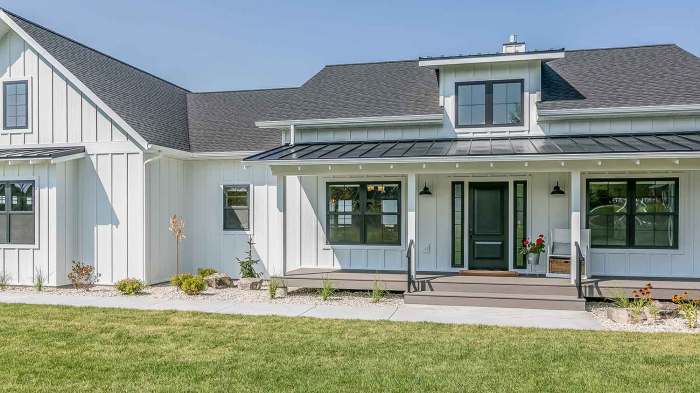Business insurance for international property developers: Safeguarding Your Global Investments
Embarking on ventures as international property developers requires a keen understanding of the risks involved and the need for comprehensive insurance coverage. This article delves into the intricacies of business insurance for international property developers, shedding light on the crucial role it plays in protecting investments across borders.
Exploring the various types of insurance policies available and the key considerations when choosing coverage, this piece aims to provide valuable insights for developers navigating the complexities of global property markets.
Overview of Business Insurance for International Property Developers

Business insurance is crucial for international property developers to protect their investments and assets from various risks that they may encounter in the course of their operations. It provides a safety net that helps mitigate financial losses and liabilities, ensuring the sustainability of their business ventures.
International property developers face a myriad of risks due to the nature of their work, which involves dealing with complex projects, different regulatory environments, and unforeseen challenges. These risks can include property damage, construction delays, legal disputes, and liability claims, among others.
Without adequate insurance coverage, developers could be exposed to significant financial losses that may jeopardize their projects and overall business viability.
Key Risks Faced by International Property Developers
- Property Damage: Insurance coverage for property damage protects developers against losses caused by natural disasters, accidents, or vandalism that may damage their properties.
- Construction Delays: Insurance policies can cover costs associated with project delays, such as labor expenses, materials, and potential penalties for missed deadlines.
- Legal Disputes: Developers may encounter legal challenges related to contracts, zoning regulations, or disputes with contractors, tenants, or neighboring property owners. Insurance can help cover legal fees and settlements in such cases.
- Liability Claims: Injuries or damages that occur on a developer's property can lead to liability claims. Insurance coverage can protect developers from financial responsibility in such situations.
Types of Insurance Policies Available for International Property Developers
- Property Insurance: Protects buildings, structures, and equipment owned by developers against damages from fire, theft, or other perils.
- Construction Insurance: Covers risks associated with construction projects, including materials, equipment, workers, and third-party liabilities.
- Professional Liability Insurance: Protects developers from claims related to errors, omissions, or negligence in their professional services, such as design or project management.
- General Liability Insurance: Provides coverage for bodily injury, property damage, and personal injury claims that may arise during the course of business operations.
Considerations when Choosing Insurance Coverage
When selecting insurance coverage, international property developers need to carefully consider various factors to ensure adequate protection for their projects. It is crucial to understand the differences between local insurance policies and international coverage, as well as how to assess the value of insurance coverage for different types of projects.
Factors to Consider when Choosing Insurance Coverage
- Location of the project: Consider the geographical location of the project, including potential risks and hazards specific to that region.
- Type of property: The type of property being developed, whether residential, commercial, or mixed-use, will impact the insurance needs.
- Project scale: The size and complexity of the project will influence the coverage required, with larger projects often needing broader coverage.
- Perils covered: Evaluate the perils covered by the insurance policy, such as natural disasters, fire, theft, or vandalism, to ensure comprehensive protection.
- Policy limits and deductibles: Understand the policy limits and deductibles to determine if they align with the project's needs and budget.
Differences between Local and International Insurance Policies
- Local policies: Local insurance policies may provide coverage tailored to specific regulations and risks in the country where the project is located.
- International coverage: International insurance policies offer broader coverage that extends beyond a single country, providing protection for projects in multiple locations.
- Regulatory compliance: Consider the regulatory requirements in different countries when choosing between local and international insurance policies.
Assessing the Value of Insurance Coverage for Different Projects
- Risk assessment: Conduct a thorough risk assessment for the project to identify potential threats and determine the appropriate level of coverage needed.
- Cost-benefit analysis: Evaluate the cost of insurance premiums against the potential losses and liabilities that could arise from unforeseen events.
- Consultation with experts: Seek advice from insurance professionals or risk management consultants to ensure the chosen coverage adequately protects the project.
Legal and Regulatory Requirements

In the world of international property development, navigating legal and regulatory requirements is crucial when it comes to business insurance. Each country has its own set of rules and regulations that must be followed, impacting the insurance choices available to developers.
Failure to comply with these requirements can lead to serious consequences, making it essential for developers to understand and adhere to the laws in each region where they operate.
Various Legal and Regulatory Requirements
- Different countries have specific laws dictating the type and amount of insurance coverage required for property developers.
- Some regions may mandate additional coverage for specific risks such as natural disasters or political unrest.
- Regulations regarding liability insurance, workers' compensation, and property insurance can vary significantly from country to country.
Impact on Insurance Choices
- Compliance with legal and regulatory requirements may limit the insurance options available to developers, as they must choose policies that meet the specified criteria.
- Developers may need to secure multiple insurance policies to ensure full compliance with the diverse regulations in different countries.
- Failure to meet the insurance requirements set forth by local authorities can result in fines, legal action, or even the suspension of business operations.
Consequences of Non-Compliance
- Not meeting insurance requirements in various regions can expose international property developers to financial losses in the event of accidents, liabilities, or other unforeseen circumstances.
- Developers may face challenges in obtaining necessary permits or approvals for their projects if they do not have the required insurance coverage in place.
- Non-compliance with insurance regulations can tarnish the reputation of developers and lead to difficulties in securing future projects or partnerships.
Case Studies and Examples

Real-world case studies of international property developers showcase the importance of having the right insurance coverage. These examples demonstrate how insurance can impact project delays, budget overruns, and risk management in property development.
Case Study 1: Project Delay Mitigation
- A luxury condominium project in Southeast Asia faced significant delays due to unforeseen weather conditions and labor disputes.
- Having comprehensive insurance coverage allowed the developer to claim compensation for the additional costs incurred during the delays.
- This ensured that the project stayed on track and was completed within the revised timeline, minimizing financial losses.
Case Study 2: Budget Overrun Protection
- An international property developer in Europe experienced unexpected cost overruns during the construction of a mixed-use development.
- With the right insurance coverage in place, the developer was able to cover the additional expenses without compromising the quality of the project.
- This helped maintain investor confidence and ensured that the project was delivered within the original budget constraints.
Case Study 3: Risk Management Success Story
- A commercial real estate project in the Middle East faced a legal dispute over property rights, threatening to halt construction indefinitely.
- Thanks to comprehensive insurance that included legal protection, the developer was able to resolve the dispute swiftly and resume construction without major disruptions.
- This highlighted the crucial role insurance plays in protecting developers from unforeseen circumstances and mitigating risks in complex projects.
Ending Remarks
In conclusion, business insurance for international property developers is not just a safeguard against unforeseen events, but a strategic tool for ensuring the success and sustainability of projects on a global scale. By understanding the legal requirements, assessing risks, and leveraging the right insurance coverage, developers can mitigate challenges and thrive in the competitive landscape of international real estate.
FAQ Summary
What are the key risks faced by international property developers?
International property developers often encounter risks such as currency fluctuations, political instability, and regulatory changes that can impact their investments.
How do local insurance policies differ from international coverage?
Local insurance policies are tailored to specific regions and may not provide the comprehensive coverage needed for international projects, whereas international coverage offers broader protection across multiple jurisdictions.
What are the consequences of not meeting insurance requirements in different regions?
Failing to meet insurance requirements in different regions can lead to legal penalties, project delays, financial losses, and reputational damage for international property developers.



